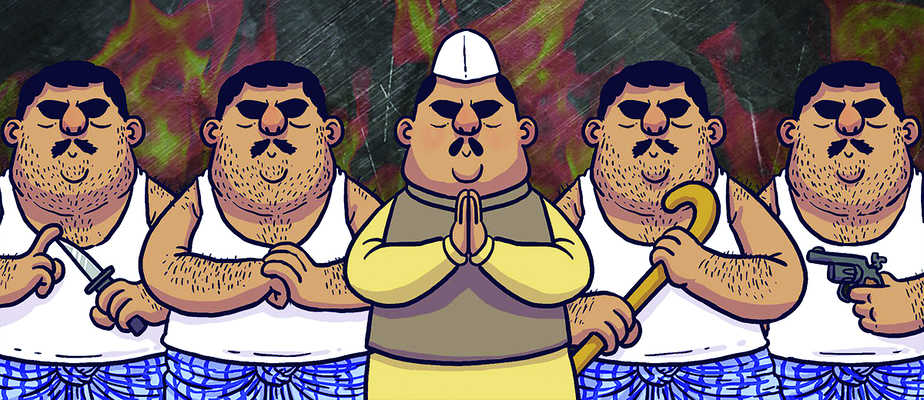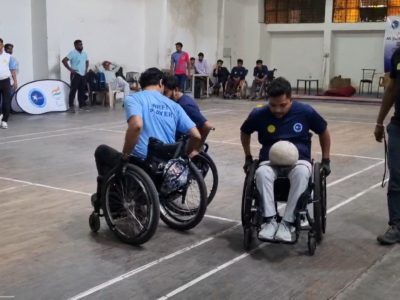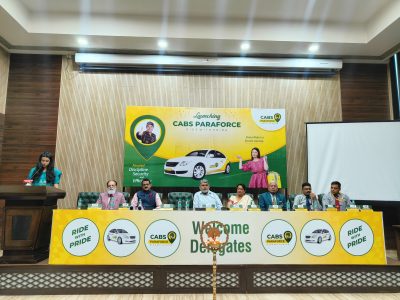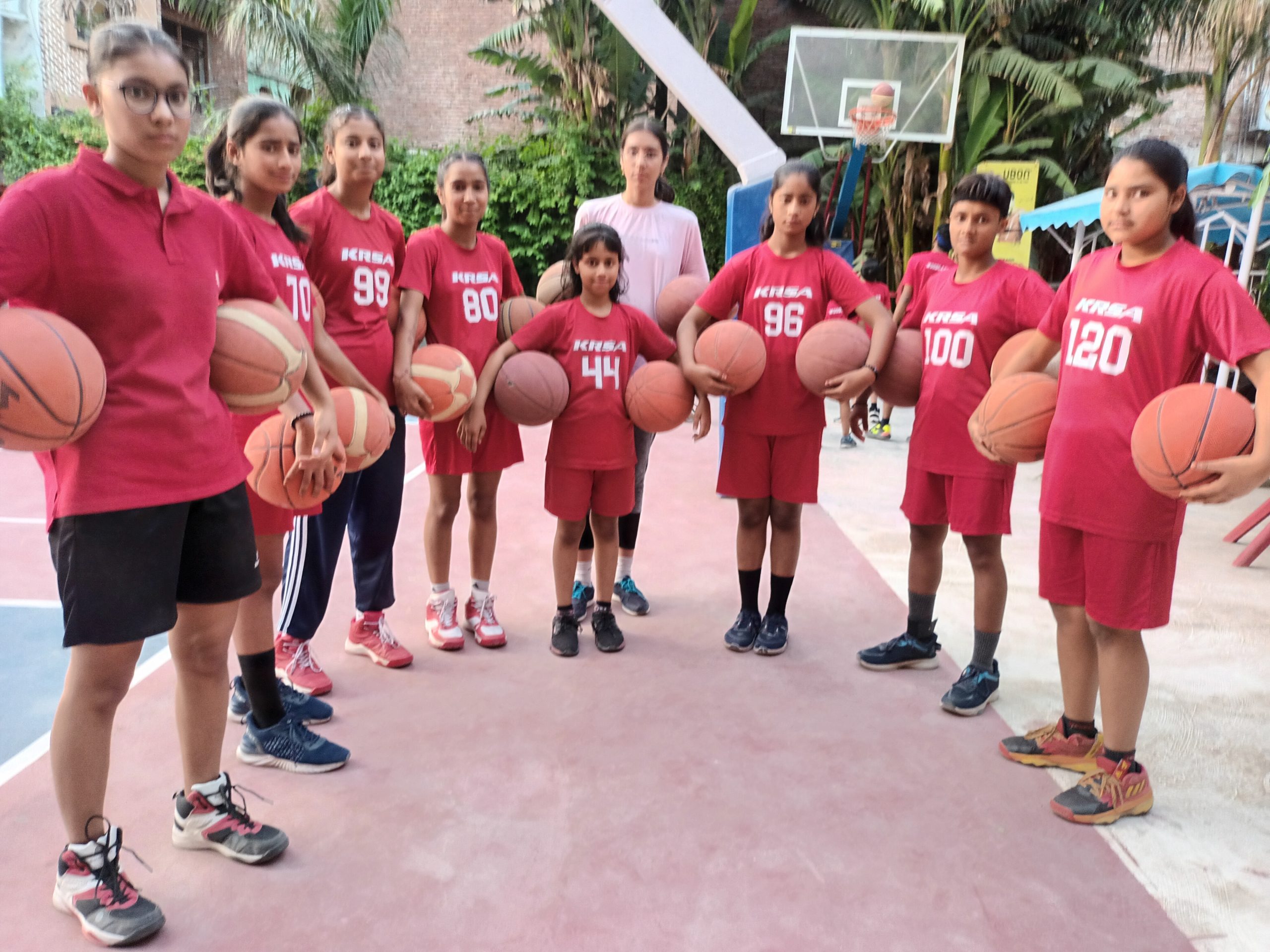Unemployment and a weak administration have driven West Bengal’s youth to regard the violent world of politics as a career option
The combination of a weak administration, unemployment, and the urge to make quick money is a deadly concoction. And this is gaining unprecedented popularity in West Bengal, with alarming results. The recent panchayat elections in May surpassed past records of politics of violence, so much so that the apex court took note of it as well.
Experts feel unemployment and a lack of alternative avenues for income generation force the majority of rural youth in West Bengal to invest in politics. They want a return on this investment of time and energy, and that means the party they’re affiliated with should come back in power — by hook or by crook. So the politics of violence has been gaining popularity in West Bengal.
Newslaundry tried to speak with some disgruntled participants of the election process. Many are from Jiaganj and Azimganj, a twin town and municipality in Murshidabad district in West Bengal. They helped the electorate choose the party, or convince them to only vote for a particular party. They ensured that not many could file nominations. Now, they feel they’re at the receiving end, without having gained enough, even if the party achieved its desired results. These people are now trying to stay away from politics, and have interesting things to share about the recent and past panchayat elections in the state.
Purno Sarkar (27), a native of Jiaganj — about one hour away from Berhampore in Murshidabad district — is packing his bags to join his brother Arun Sarkar in Delhi. He studied till Class 6, and picked up a manageable amount of Hindi and a word or two in English from Bollywood movies.
Sarkar’s father was a refugee and reached the village during Partition. They have a piece of land which his father got and live in a mud hut, but he dreams of transforming it into a concrete one. His father trained him to catch fish, which he does now for a living, and during the monsoon, business is brisk. But throughout the year, the unpredictability of quantity keeps the family on edge. So Sarkar contributes his services at the local party office of the Trinamool Congress (TMC). He wasn’t very active this year, but is well aware of the tricks of the trade. So he wants to quit and look for better opportunities.
Purno Sarkar is not alone. His cousin Arbindo Sarkar (40) left the village many years ago, but annually returns for elections in the village. Arbindo, now an Uber driver in a metropolitan city, says he needs to keep party members in good humour. He was with them for a long time, and not keeping them in good faith means you’ll have to face trouble.
“My mother lives here in Jiaganj and my ancestors’ house is here,” he says. “If I oppose them [party members] over anything, I will be destroyed. If I want to live here, I must keep them in good faith. I will have to listen to them. So every year I come back during elections, when they call me.”
The West Bengal panchayat polls hit the headlines this year. According to The Wire, reasons include “opposition candidates facing blocks in filing their nomination papers, lumpen elements being allowed to run free, and the ongoing tussle between the TMC and the Bharatiya Janata Party (BJP), as the latter continues to grow in the state”.
Take the case of 55-year-old Priti Das, who has been running a computer business for the past many years in Jiaganj. He earns well and is a known BJP supporter. “Ami BJP ke bhalobashi aar kichu na (I support BJP and nothing else),” he says. “This time, the panchayat elections were a game of disrupting the procedure. People have freely been threatened and instructed to vote for TMC. There is a pattern that has been put in place to ensure that there should be no opposition ever.”
Priti Das is an affluent person keen to fight in the panchayat elections. He hesitantly confirms he could not file nominations because of violence, and because he faced impediments from local TMC leaders. He says, “It was my desire to serve my village and country, but I could not.”
Recently, the Chief Justice of India, Dipak Misra, questioned how thousands of seats went uncontested in various districts across West Bengal. According to a report in the Indian Express, he said a few hundred could have been understood, but thousands is “shocking”. Data from the West Bengal State Election Commission says 20,076 of the 58,692 seats went uncontested. Most of these seats were in Birbhum, Bankura, South 24 Parganas and Murshidabad districts.
Talking to a cross-section of rural and urban people makes it clear there was violence and rigging in May’s panchayat elections, something they view as routine. This time, though, it was above the expected limits.
Biswanath Chakraborty, a political scientist and professor of political science in Jadavpur University, studied this violence of politics and agrees. He says, “Violence was always a part of Bengal politics. Look at the history in the 1970s and 1980s, and even now. It is not new. But it’s touched a new low in recent times.”
In 2016, Business Standard described in detail the background of election violence in West Bengal. The report said, “Books on contemporary India tell us that the first instance of what was to become booth capturing took place way back in 1957 in Begusarai, a district in central Bihar. Even as the second general elections were underway, some goons belonging to one political party blocked supporters from a rival party to cast their votes.”
And this trend only became larger as years went by. The report said, “Politicians used to hire criminals to do the job for a fee or with the assurance of immunity from police harassment. Having tasted blood, criminals stopped outsourcing their skills for others and started entering the fray themselves.”
The report noted a crucial difference between the way rigging used to take place in Bihar versus that in West Bengal. In Bihar, political violence was committed by unknown people with no party affiliations. In West Bengal, the responsibility lies with party workers, who therefore needed to be kept in good humour. The report added, “This is why the state has to dole out patronage. The Left rule was adept in doing that and Trinamool Congress top brass learnt the trick in no time.”
Not much has changed since this 2016 story. There has been a substantial rise in political violence and booth capturing, and a weary acceptance of this by citizens.
Casual conversations with roadside vendors and office-goers reveal just this — they may have witnessed a change in regime, but political tricks are still in place. The Left did it mildly, but the TMC aggressively placed it on the face of people. The TMC hasn’t yet said whether it’s trying to check political violence during elections, or otherwise.
Chakraborty explains, “The biggest reason for the current state-of-affairs is joblessness. There is no income generation. There are always two types of students. One is an ‘A’ student who scores the top ranks. Or some students may not get high scores, but has the advantage of an urban locality, and can choose an alternative career to make a living. Therefore, placement is never an issue for such people. However, there’s another set of students who have not stayed in urban areas. With rural education and minimal communication skills, they struggle to eke out a living. And they have been lured to join the business of politics. They thrive, but democracy goes for a toss.”
An entry-level position in politics holds less risk than several other professions, and BJP sympathiser Priti Das’s claims support this.
Having failed to file his nominations, Das currently lives in great discontent. He says, “The cheapest houses under the PM Awas Yojana are `3.68 lakh. The houses have been allocated to the choicest people at `2 lakh and `1,68 lakh is earned in each house. Isn’t it lucrative? Who is pocketing this `1.68 lakh? Even a Class 5 student would be able to tell you.”
Rural and urban West Bengal is not refuting Das’s theory. Social and political scientists agree this trend needs immediate recourse, before it further destroys the state. West Bengal needs an overhauling of its state administration, so it can work independently, and a proper plan in place to ensure rural youths get better options than politics.
www.newslaundry.com





